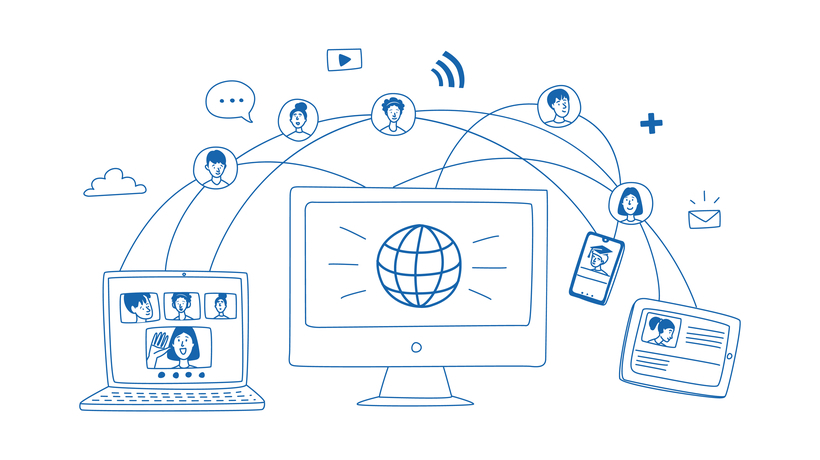The Pros And Cons Of Distance Education
If you are thinking about distance education, then you definitely want to know everything about it.
The Pluses
You Have The Opportunity To Learn At Any Time
A student who studies remotely can decide when and how much time to devote during a semester to studying the material. They make an individual study schedule for themselves. Some educational institutions give their students the opportunity to postpone and return to their studies without having to pay tuition fees again.
You Have The Opportunity To Study At Your Own Pace
Students do not have to worry that they will leave their classmates behind. You can always go back to studying more complicated questions, watch video lectures several times, read correspondence from the teacher, and you can skip already known topics. The main thing is to successfully pass intermediate and final attestations.
You Can Study Any Place
Students can study without leaving their home or office, anywhere in the world. To start learning, you must have a computer with internet access. Absence of the need to attend an educational institution every day is a definite advantage for people with disabilities, for those living in hard-to-reach areas, imprisoned parents with young children.
Offers On-The-Job Training
It is possible to study remotely in several courses simultaneously to receive the next higher degree. For this purpose, it is not necessary to take a vacation at the main place of work or go on business trips. There are educational organizations that organize corporate training (professional development) for employees of firms and civil servants. In this case, the study does not interrupt the length of service, and the issues studied can be immediately applied to working life.
High Training Results
Studies by American scientists show that the results of distance learning are not inferior or even superior to traditional forms of education. Distance learning students study most of the learning material on their own. This improves the memorization and understanding of topics learned. And the ability to immediately apply the knowledge in practice at work helps to consolidate it. In addition, the use of the latest technology in the learning process makes it more interesting and lively.
Offers Mobility
Communication with teachers/tutors is carried out in different ways, both online and offline. Consulting with a tutor by email is sometimes more effective and faster than scheduling a face-to-face meeting in person or by correspondence.
Availability Of Training Materials
The students who study remotely are unfamiliar with such a problem. Access to all necessary literature is available to students after registration on the university website or they receive educational materials by mail.
Distance Education Is Cheaper
If we compare training in a single specialty on a commercial basis, both full-time and remotely, the second will be cheaper. The student does not have to pay for travel, accommodation, and in the case of foreign universities, they do not need to spend money on a visa or foreign passport.
It Is Convenient For The Teacher
Teachers and tutors who teach remotely can pay attention to more students and work while on maternity leave, for example.
Individual Approach
In traditional teaching, it is quite difficult for the teacher to give the necessary amount of attention to all students in the group and to adjust to the work pace of each. The use of distance technologies is suitable for organizing an individual approach. In addition to the fact that the student chooses their own pace of learning, they can quickly get answers from the tutor.
The Minuses
Strong Motivation Is Required
Almost all training material is mastered by the students themselves. This requires developed willpower, responsibility, and self-control. Not everyone is able to maintain the right pace of learning without control.
Distance Education Is Not Suitable For The Development Of Communication Skills
In distance learning, students' personal contact with each other and with teachers is minimal, if any. Therefore, this form of training is not suitable for developing communication skills, confidence, or teamwork skills.
Lack Of Practical Knowledge
It is difficult to teach specialties that involve a large number of practical exercises remotely. Even the most modern simulators will not replace future physicians or teachers of "live" practice.
The Problem Of User Identification
So far, the most effective way to see if a student has passed exams or credits honestly and independently is through video surveillance, which is not always possible. That's why students have to come to the final exam in person to visit the university or its branches.

